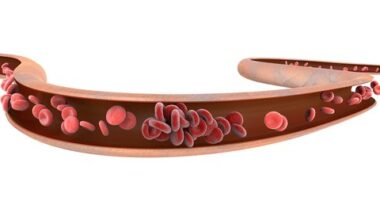Iron-transporting CD71 Protein May Be Therapy Target in SLE, Study Says
Blocking CD71 found to reduce disease-driving activity in preclinical models

Blocking CD71, a protein that cells use to import iron, reduced the disease-driving inflammatory activity of immune cells in preclinical models of systemic lupus erythematosus (SLE), a new study shows.
The study, “Elevated transferrin receptor impairs T cell metabolism and function in systemic lupus erythematosus,” was published in the journal Science Immunology.
Iron plays a number of important biological roles in the body. For example, iron is critical for the function of hemoglobin, the protein that transports oxygen through the bloodstream, which is the reason why low iron levels can contribute to anemia.
Researchers test how iron metabolism affects T-cell activity in SLE
In SLE, the immune system launches an inflammatory attack that targets the body’s own healthy tissue, leading to a wide range of symptoms such as fatigue, headaches, and joint pain. A class of immune cells called T-cells plays a central role in the SLE-driving autoimmune attack. In this study, researchers conducted a battery of tests to assess how iron metabolism affects T-cell activity in SLE.
Earlier studies had suggested that disease-driving T-cells are often high in iron, but “it was not clear why the T cells were high in iron, or what that meant,” Kelsey Voss, PhD, a postdoctoral fellow at Vanderbilt University Medical Center and the study’s lead author, said in a university press release.
The researchers first conducted a cellular screen where they used gene-editing technologies to systematically delete various iron-related genes from T-cells and then assess how this affected their function. This screen identified the CD71 protein as important for the inflammatory activation of T-cells.
CD71, also known as the transferrin receptor, is a protein that sits on the cell surface and helps to bring iron into cells.
If you’re trying to target an autoimmune disease by affecting T cell function, you want to inhibit inflammatory T cells but not harm regulatory T cells. That’s exactly what targeting the transferrin receptor did.
There are several different subtypes of T-cells with different roles in controlling inflammation. The team specifically found that blocking the activity of CD71 made Th1 and Th17 cells, which are pro-inflammatory T-cell subtypes that can drive SLE, less active. By contrast, blocking CD71 enhanced the activity of regulatory T-cells (or Tregs), which are anti-inflammatory and may lower SLE activity.
“It was really surprising and exciting to find different effects of the transferrin receptor in different types of T cells,” Voss said. “If you’re trying to target an autoimmune disease by affecting T cell function, you want to inhibit inflammatory T cells but not harm regulatory T cells. That’s exactly what targeting the transferrin receptor did.”
Additional experiments showed that CD71 was more highly expressed, or produced, on T-cells from people with lupus and in those of SLE-prone mice. This led to alterations in molecular signaling pathways in cells.
“We see a lot of complications coming from that — the mitochondria don’t function properly, and other signaling pathways are altered,” Voss said. Mitochondria are the cellular compartments responsible for energy production.
Further experiments done in animal models confirmed that blocking CD71 could reduce disease activity and boost the production of an anti-inflammatory molecule called interleukin 10.
Collectively, the data suggest that CD71 “can be targeted to limit SLE-associated pathology [disease processes],” the researchers wrote.
Since CD71 is found on many types of cells, indiscriminately targeting the protein is likely to cause off-target side effects, the researchers noted. The team is now interested in developing therapeutic candidates to specifically target the protein on T-cells.








